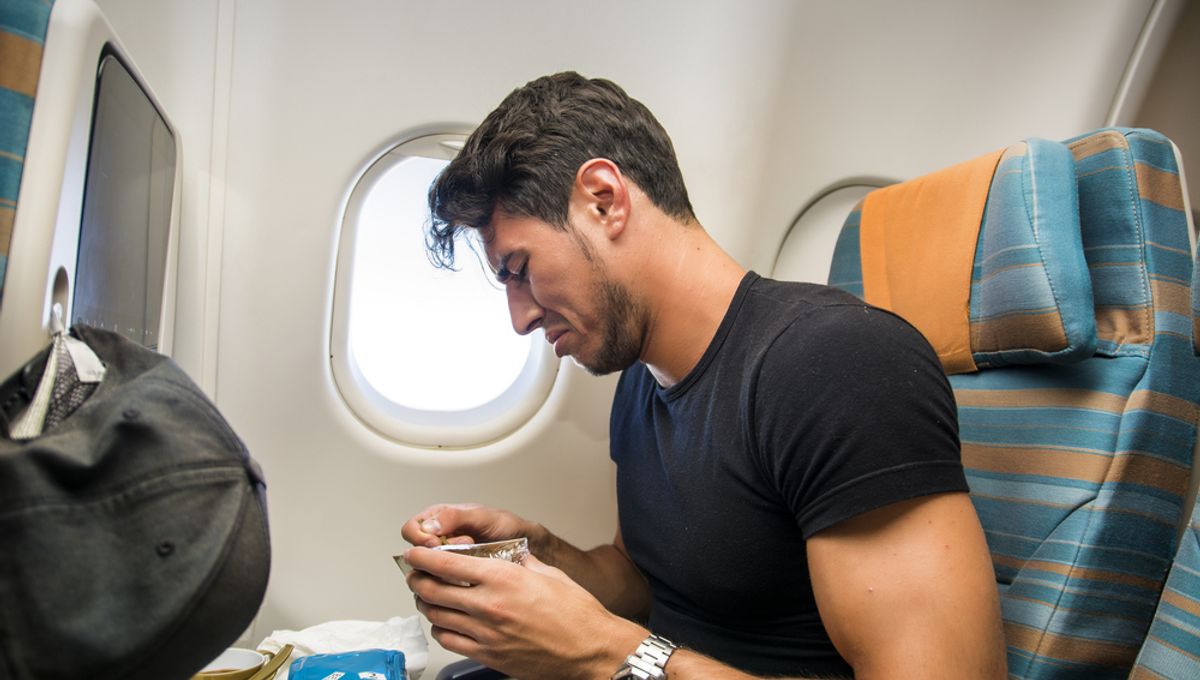
It’s no secret that airplane food can be a god-awful box of tasteless slop, but that’s necessarily the fault of the airline’s chef. In actuality, your tastebuds perceive food and drink much differently when they’re cruising at 36,000 feet compared to sea level. Here’s why.
Inside a sealed airplane cabin, the re-circulated air becomes very dry. It’s estimated that the air in a commercial airplane has around 12 percent humidity, which is drier than most deserts.
Due to the lack of moisture in the air, our nasal passages become dried out, reducing our olfactory system’s ability to discern smell. Since smell plays a vital role in the sense of taste, our perception of food’s flavor can be dampened down, making it taste blander.
Combined with low pressure, the air dryness results in salt being perceived as up to 30 percent less intense and sugar up to 20 percent less intense, according to a 2010 study by Fraunhofer Institute for Building Physics, commissioned by German airline Lufthansa.
“In the air, food and drink tastes as it does when we have a cold,” said Dr Andrea Burdack-Freitag, an aroma chemist who worked on the project, in a statement.
The study suggested that Asian dishes, which tend to have a more intense aroma and are rich in umami, tend to retain their flavor more effectively than so-called “milder dishes,” such as plain fish or poultry.
Noise can also be an issue. Research has shown that background noise can have a significant effect on food perception, especially our taste of sweetness and saltiness. Since the noise inside airplane cabins can reach around 80 decibels – about the same as an electrical vacuum – this is also likely to weaken your enjoyment of food.
There are some steps you can take to combat this effect, however.
A study in 2015 found that umami-rich foods – such as tomatoes, mushrooms, and aged meats – tend to retain their deliciousness even when consumed in an airplane-like environment. Airlines have reportedly picked up this trend, noticing that passengers consume suspiciously high amounts of tomato juice when flying.
Robin Dando, assistant professor of food science at the City University of New York explained in a statement: “Our study confirmed that in an environment of loud noise, our sense of taste is compromised. Interestingly, this was specific to sweet and umami tastes, with sweet taste inhibited and umami taste significantly enhanced. The multisensory properties of the environment where we consume our food can alter our perception of the foods we eat.”
So, if you’re sat on an 8-hour flight with the prospect of a very unappetizing and inescapable dinner, we’d opt for a meal that’s salty and rich in umami, washed down with a Bloody Mary.
All “explainer” articles are confirmed by fact checkers to be correct at time of publishing. Text, images, and links may be edited, removed, or added to at a later date to keep information current.
Source Link: There's A Very Good Reason Why Airplane Food Tastes Terrible